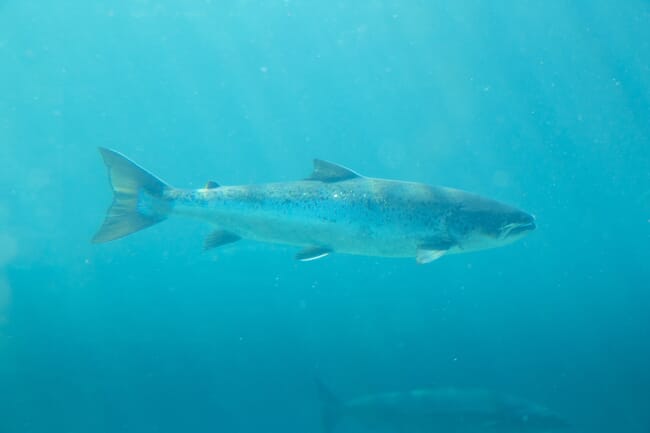
An unprecedented gene bank project is among seven major environmental projects being supported by Scotland’s salmon farmers in an effort to support Scottish populations of iconic wild salmon and sea trout.
Almost £140,000 has been granted to organisations this year through Salmon Scotland’s wild fisheries fund to address long-term species decline. The fund is part of a £1.5 million commitment from Scotland's salmon farmers to support the conservation, restoration, and sustainable management of wild fish numbers.
One of the most ambitious projects funded through this scheme, Tighnabruaich-based Otter Ferry Seafish has been awarded £49,404 to work with Argyll wild fisheries experts to develop a gene bank to boost threatened salmon populations. The initial four-year project is being developed in partnership with the Argyll Fisheries Trust and the River Ruel Improvement Association. Organisers hope the project will not only help stock several regional rivers but will also become a blueprint for a wider network of gene banks across the country.
“Working together with the Argyll Fisheries Trust and the River Ruel Improvement Association, we aim to preserve the genetic integrity of the river’s salmon population while giving it a real chance for rapid recovery in the future,” said Alastair Barge, Otter Ferry Seafish managing director, in a press release.
Wild salmon and sea trout populations throughout the UK have been in decline for decades – particularly because of habitat loss, rising river and sea temperatures, disease, and parasitism. These fish now have a marine survival rate of between 1-5 percent, compared to around 25 per cent only three decades ago.
More than £335,000 has already been invested by the Scottish salmon sector since 2021, including a £35,000 grant to save the leaking Fincastle Dam on West Harris, helping preserve an important salmon fishery. The fund is co-ordinated by fishery manager Jon Gibb, who is based in Fort William and has championed a constructive relationship between the farm-raised salmon sector and fisheries and angling groups.
Amongst the other projects awarded funding this year, the Galloway Fisheries Trust has been granted over £22,000 to reduce acidity in the River Bladnoch, whilst Urras Oighreachd Chàrlabhaigh was awarded £6,305 to support surveying, analysis, and spawning bed improvements on the Carloway River on the Isle of Lewis.
“In 2023, wild Atlantic salmon in Scotland were officially classified as an endangered species. It’s fantastic to support a variety of innovative projects dedicated to conserving and enhancing habitat, particularly for species facing extinction in certain areas,” said Josh Gibb, co-ordinator of the wild fisheries fund.




